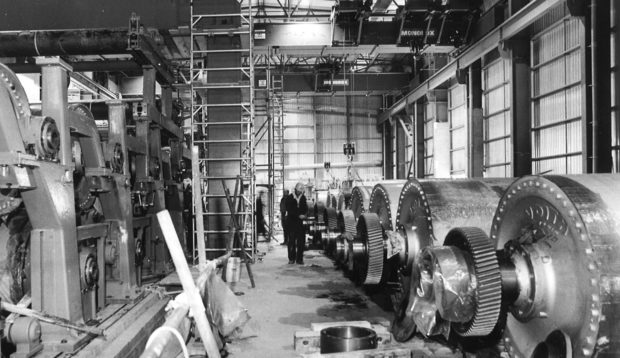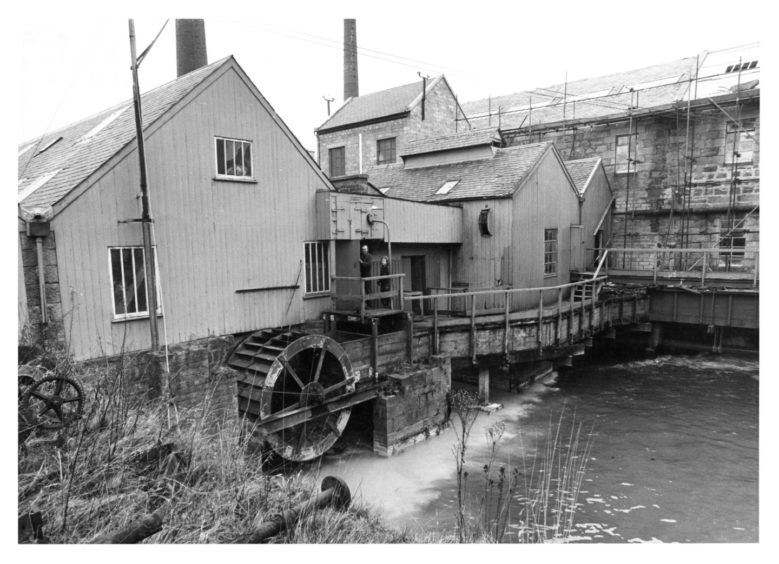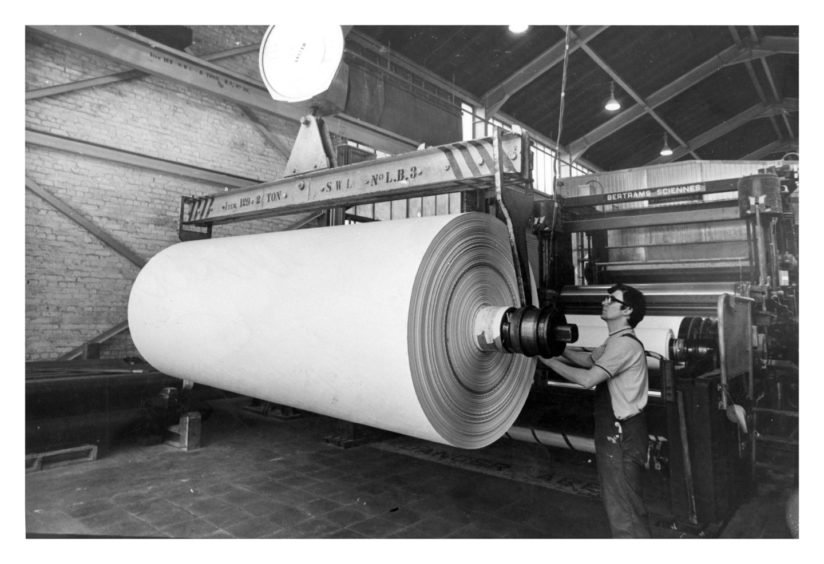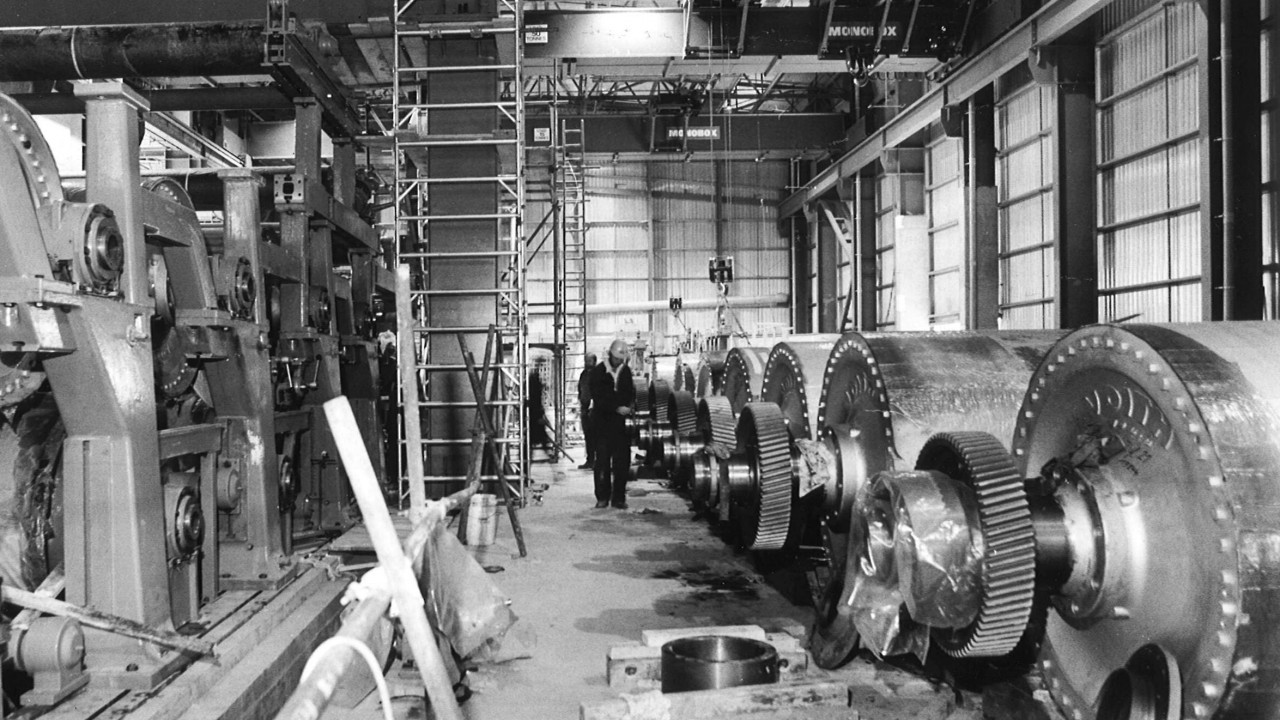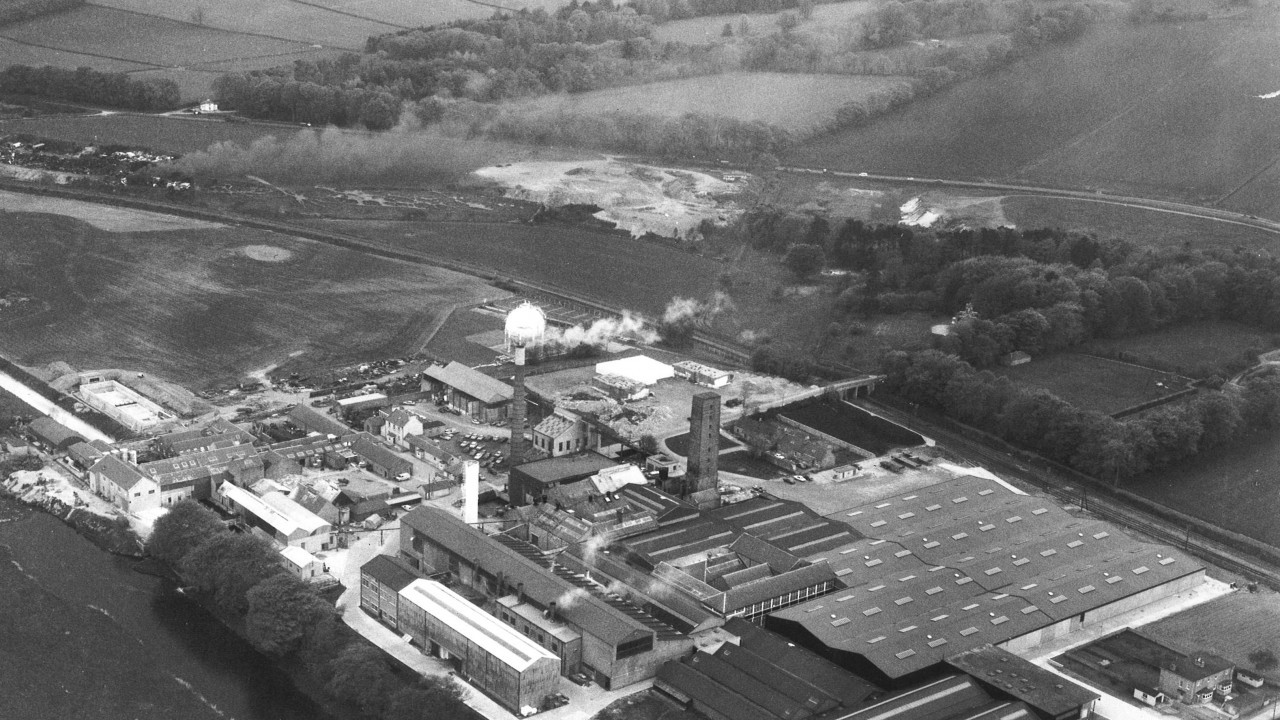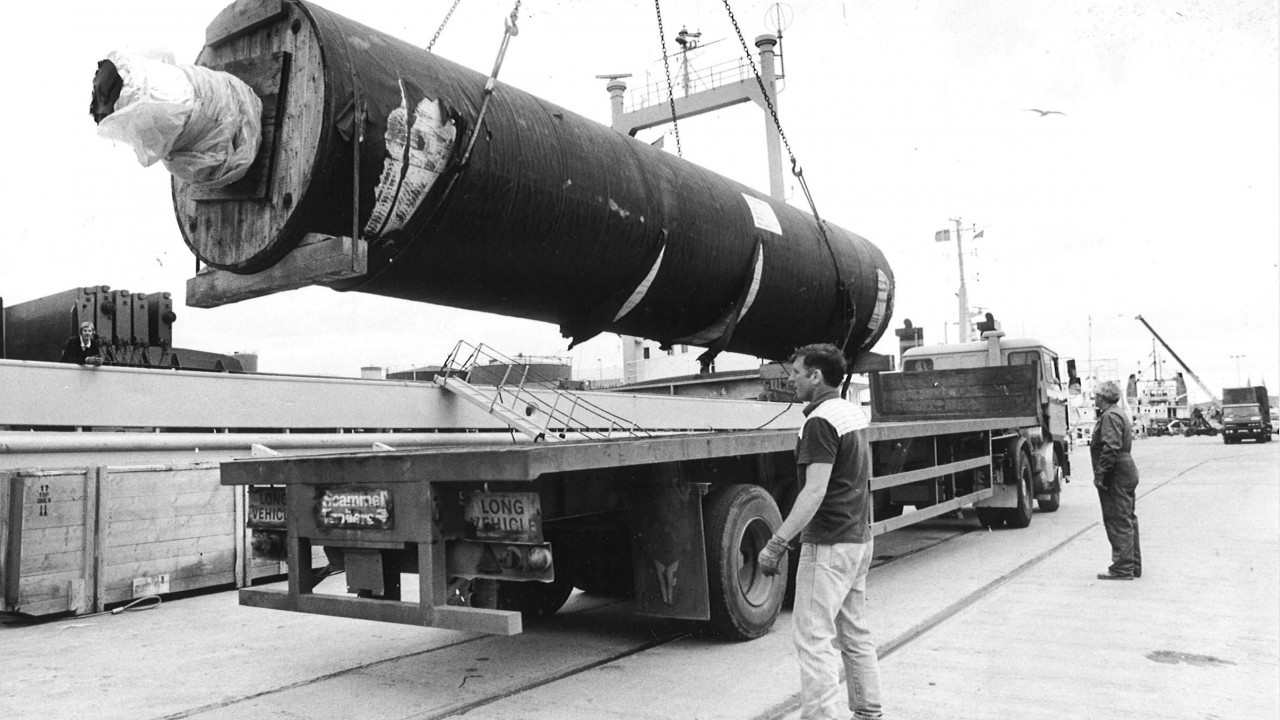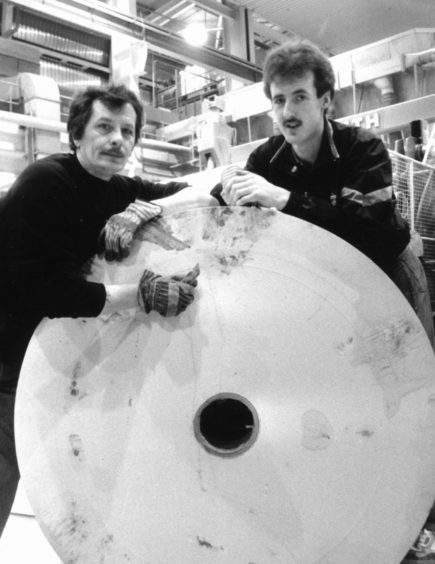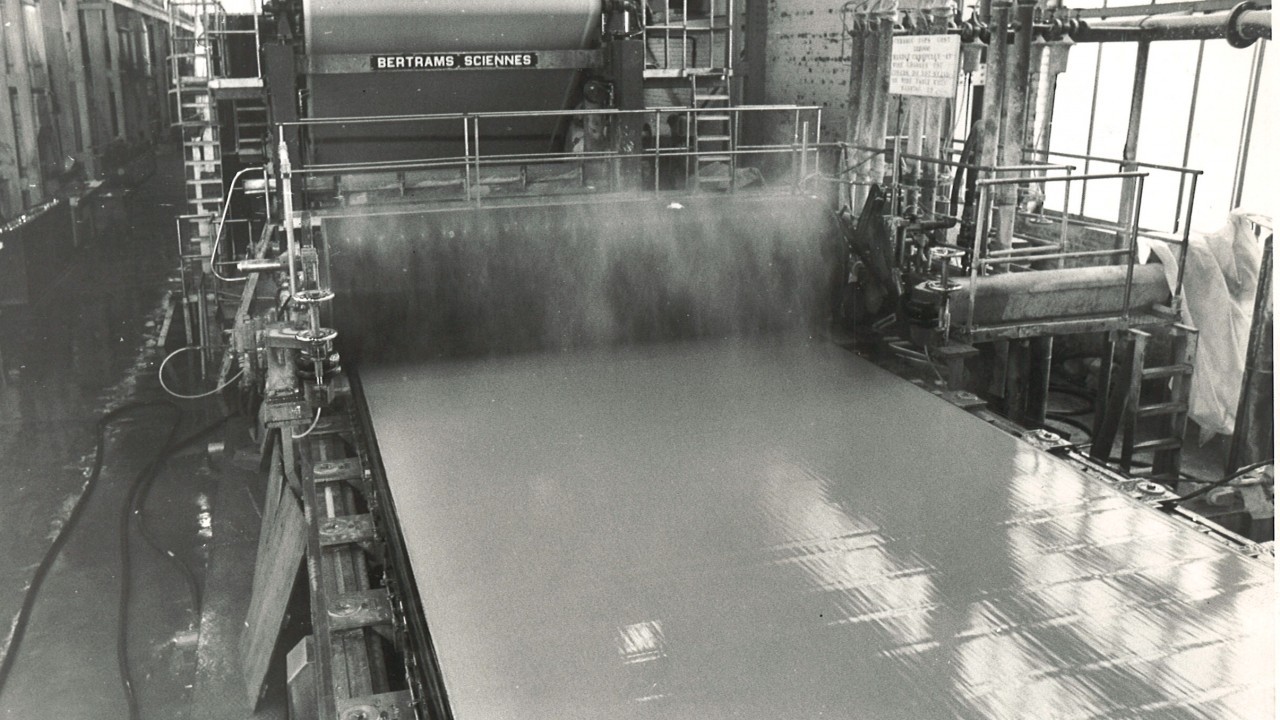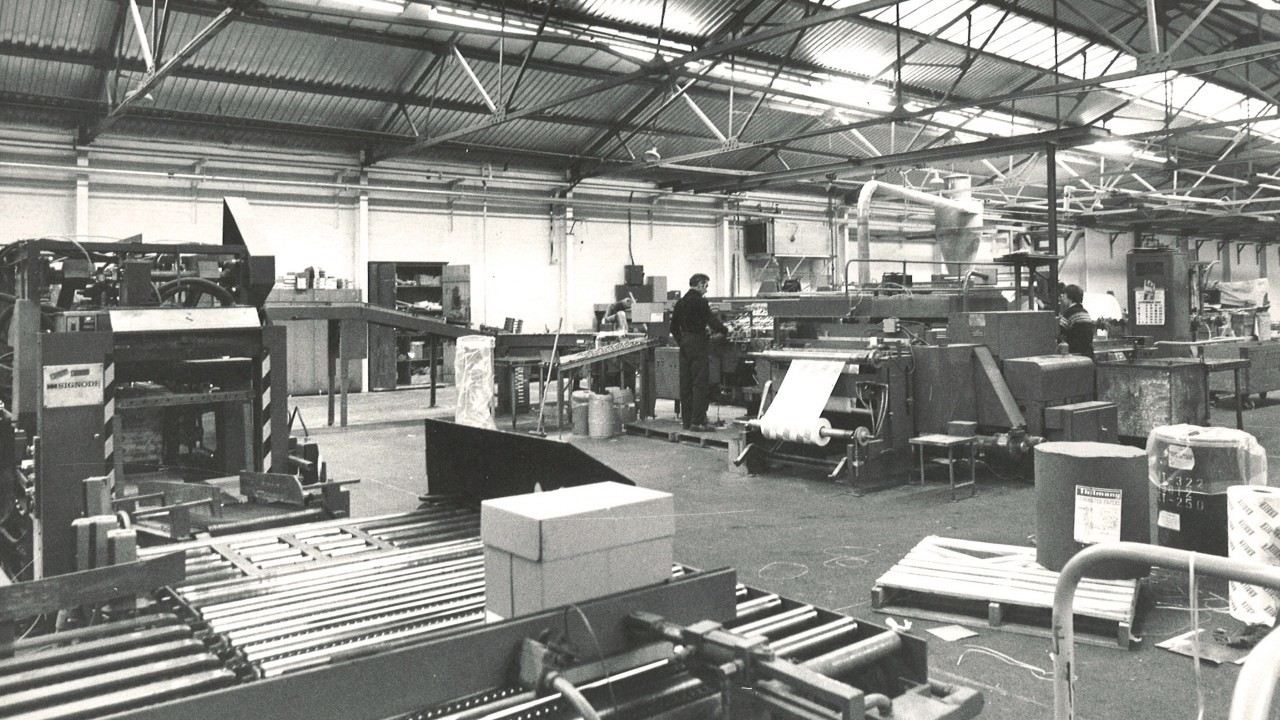It was one of the most famous paper mills in the whole of Scotland.
And, less than 30 years ago, the paper plant employed more than 500 people in Aberdeenshire.
But there were plenty of contrasting experiences for Thomas Tait, the sprightly septuagenarian who took over the running of Inverurie paper mill after his father William was killed in a tragic road accident 50 years ago.
Thomas Tait
It was a difficult time for the whole Tait clan, whose roots in the north-east stretch all the way back to the Battle of Bannockburn in 1314 and whose diverse business interests encompass everything from farming and mills to quarrying and manufacturing snuff.
Mr Tait has travelled the world on behalf of the company and visited everywhere from Fiji to Australia and throughout Europe, as he and his colleagues reacted to growing demand.
But he will be involved in a journey of a different kind this weekend when a massive relocation project is carried out in his native community.
He will watch with a variety of emotions when a massive 50-tonne granite roll, measuring almost 10 metres long, which was an integral part of paper-making history in the region, makes its final journey to the Garioch Heritage Centre in Inverurie on Saturday.
The prized artefact is being donated by the former owners of Thomas Tait and Sons Ltd, the Inverurie Paper Mill which closed in 2009.
But time has not erased the influence which this place had on so many families or diminished the memories of Mr Tait whose connections with the mill stretch back almost 70 years.
He said: “I remember being taken into the workplace, dressed in my Sunday best, when I was just five years old and being allowed to press a button which seemed very exciting.
“I couldn’t understand at that stage why everybody was interested in what I was doing, but as the years passed, I learned all about the different aspects of life at the mill.
“I was only 21 when my father was killed and that was obviously a sad time in our family. Dad was walking to work and was on a bridge when the accident happened.
“We just had to get on with it, because there was so much expansion going on at the mill.
When I started in the 1970s, we were producing around 10,000 tons of paper every year, but the demand kept increasing and that figure had risen to 250,000 tons by the time I retired, which led to us employing more people and we were sending paper to all parts of the globe.“
The formidable granite roll, which is being transferred this weekend, was last moved in 1985 when it was installed in a new machine – called PM4 – as part of a major £22.5 million investment by the mill.
It played a vital function at the site, squeezing water out of the paper at the early stages of production on a machine which, at the time, was the biggest of its type in the UK.
The device was originally destined for Iran, but the impact of the Iranian Revolution left the German manufacturer with a ‘redundant’ machine.
That was the catalyst for Thomas Tait to purchase it and bring it to Inverurie to create business communication and fine copier papers.
And a building the size of two football pitches end-to-end was built to house the PM4.
Even now, Mr Tait can reel off statistics which testify to the impact of this groundbreaking machine as it worked its magic in Inverurie.
At the height of its production, the roll played its part in producing 3,000ft of 272 inch-wide paper every minute.
This astonishing production rate required a lorryload of paper to be dispatched every 45 minutes out of the doors for every hour of every day.
And, if you need a more vivid indication of the scale of its operations, the machine produced enough paper on a 24-hour basis to stretch from Inverurie to beyond Paris.
Mr Tait, was chairman and managing director of Thomas Tait and Sons Ltd, which was launched by his five times great grandfather in 1852.
He took over at the helm after the untimely death of his father and said: “Papermaking was an important part of the working heritage of the Garioch area, and the mill played a key role as a significant employer.
“My family had the foresight in the 1850s to realise that, as education became more widespread, that there was more going to be more need for the printed word.
“Other generations of the family ensured that there was constant investment in the newest technologies of their times and the PM4 machine was an example of this.
“In 1994, the mill employed 510 people, who worked in shifts for 365 days a year for 24 hours a day across five different crews.
“We had a very loyal, very dedicated workforce and many of them gave decades of service to the company. It was maybe an old-fashioned way of doing things, but you started at the bottom and gradually moved up the ladder and gained promotion as you grew more experienced.
“I knew many of these people personally and I was proud of the way we all worked together to make the business a success throughout the 1980s and 1990s.
“The granite roll was decommissioned in 2004 when it was replaced with a silicone-coated steel roll and it has been at Kirkwood Commercial Park [in Inverurie] waiting for a new purpose ever since.
“However, it is our understanding that our PM4 is currently still producing paper in Russia, which then sends back material to Britain – which seems a bit ironic.“
Mr Tait was shocked by the rapid fashion in which the mill ceased operations 11 years ago.
Even now, he sounds stunned by the realisation of how so many people’s jobs and lives were affected by the plant’s closure at a time when the British economy started to flatline in the aftermath of the British banking crisis.
He said: “It was horrendous for me and my family when it happened and we knew what the consequences would be for the staff who had done a terrific job for us for so long.
“I remember travelling to Edinburgh on a train and receiving a phone call about the closure and it was hard not to shed tears, given the history of the mill.
“I also recall being asked to take a look at the machines in the mill later on, but I refused. There were no people there any more and my main concern was for them.
“The oil industry was still in good shape at that time and we had skilled workers whose talents could be utilised elsewhere – but there were others who didn’t do so well.
“It was a tough time, and people have had to be imaginative to create new sources of employment which is one of the reasons why the Garioch Heritage Centre is so important.
“I am sure it will be emotional to watch the roll being moved, stage by stage, in what has to be a carefully executed exercise on closed roads.
“But, by adding to the Heritage Centre’s collection, I hope that the history of a proud industry won’t be forgotten in this area.”
The formidable granite roll will be on the move this weekend
The granite roll will travel from its current location, along closed roads, on Saturday morning to the Garioch Heritage Centre.
Following a meticulous operation, it will be craned into position by a 200-tonne lifting crane from the lorry at approximately 12.30pm.
The Garioch Heritage Centre is home to an extensive archive, donated by Thomas and Sheila Tait, which tells the story of the 157 years of papermaking history at the family business.
The roots of the Inverurie Paper Mill extend back far beyond the 1850s.
More than 200 years earlier, the Tait family had built a dam and tail race to provide power for the Meal Mill located at Port Elphinstone.
Prior to constructing the paper plant, they were farmers with interests in timber and the grain trades, but were sufficiently far-sighted to keep developing ambitious projects.
Around 1800, the family expressed an interested in building a canal between Inverurie and Aberdeen, 15 miles away, to export grain and feedstuff.
The terminus of this canal eventually became the village of Port Elphinstone.
As industrialisation progressed throughout the north east in the 19th century, a railway was built along the route of the canal.
As a result, the railroad company required large parts of the canal banks to lay their tracks and paid significant sums as compensation to Thomas Tait.
This allowed him to create the paper mill, which brings us back to the start of our story!
